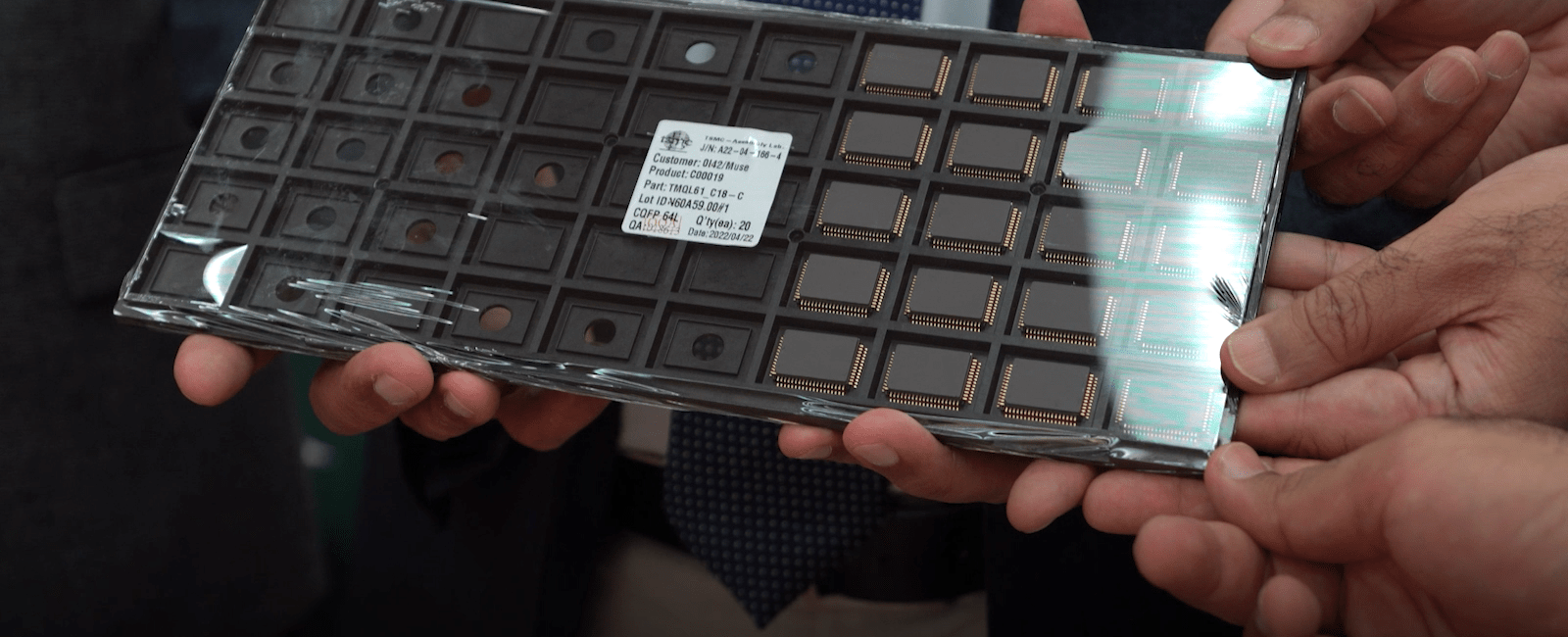NUST Researchers have successfully completed full functional testing of the country’s first truly indigenously designed microprocessor, `NTiny-E’. The embedded microprocessor chip has been designed by the research team of the NUST School of Electrical Engineering & Computer Science (SEECS), led by Dr Rehan Ahmed.
Semiconductor chips are at the heart of all electronic devices and consumer appliances that we use every day. Global semiconductor sales reached the US $556 billion in 2021 but Pakistan has not been able to benefit from this lucrative market. NUST, in line with its vision of undertaking, applied research and innovation, embarked upon the journey to make Pakistan self-reliant on this critical technology.
The unique aspect of the project is its completely in-house design as opposed to the common practice of using open-source cores from other sources or foreign collaborations. This makes NTiny-E a truly indigenous product that provides the design team with complete leverage and control over all aspects of the chip.
NUST selected the world’s largest and leading commercial foundry, Taiwan Semiconductor Manufacturing Company Ltd. (TSMC) for chip fabrication utilizing the industry-standard 65 nm process node. This demonstrates researchers’ ability to design chips that are compliant with international industrial design and fabrication standards. NUST team has not limited itself to the design of the chip itself but also developed a complete ecosystem required for chip testing and its incorporation into end products. The printed circuit board for chip testing and prototyping of end systems has also been indigenously developed along with associated software and development tools.
This will facilitate researchers and industrial product developers to design and manufacture products based on NTiny-E. The target market for NTiny is embedded systems, IoT devices, consumer electronic products, etc. The indigenous nature of the product alleviates concerns related to cyber security and technology denial.
NUST is also developing competent and market-ready human resources for the semiconductor market to address critical shortages through its undergraduate and post-graduate programs. In the backdrop of the global shortage of semiconductor chips and export restrictions, the contributions of NUST researchers will help reduce dependence on foreign imports in the long run.

